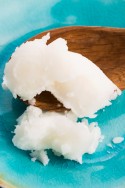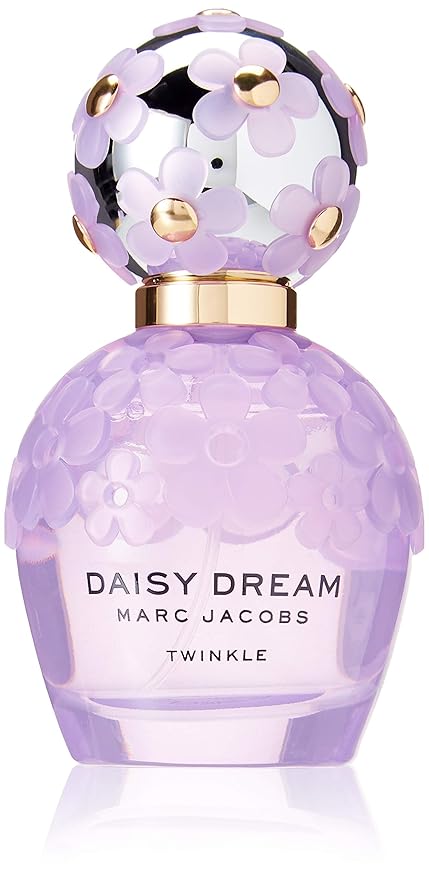 If you’re still wondering if coconut oil is the big bad wolf or your best friend forever, the time has come to arm yourself—with the facts!
If you’re still wondering if coconut oil is the big bad wolf or your best friend forever, the time has come to arm yourself—with the facts!
Of course, for those who remember when coconut oil was decried as a decadent, saturated fat that clogged arteries and triggered heart attacks, hesitation at embracing this tropical oil is, well, understandable.
After all, there was a time when everyone and their sister sounded the alarm on this supposedly stealth killer.
If you read our story, The Big Fat Surprise, you know why: A tsunami of faulty science, power-grabbing, and sheer incompetence sent America down a path of villainizing fat—especially the saturated kind—starting in the mid-1900s. The forces that be urged the people of the land to replace traditional fats (like coconut oil!) with hydrogenated vegetable oils. Why slather butter onto your toast, when Crisco was, Oh so available?
While the word was out that tropical oils were bad, bad, bad, it wasn’t until the mid-1980s that they came under the fiercest of attacks, as three different entities took aim at the saturated fat content in popular food products.
The first was the Center for Science in the Public Interest —one of the country’s most powerful consumer food groups. It launched a series of campaigns—including one called “Saturated Fat Attack”—which pressured fast food restaurants and movie theatres to ditch the saturated fat in their wares (coconut oil and butter in the case of movie popcorn) for, well, hydrogenated vegetable oils, instead.
Another attack came from a retired Nebraska millionaire named Philip Sokolof who blamed saturated fat for a near-fatal heart attack he suffered in his 40s. Sokolof lobbied food manufacturers—and even took out full-page ads in major newspapers decrying “THE POISONING OF AMERICA” and featuring the day’s most beloved products (Sunshine Hydrox Cookies and Pepperidge Farm’s Goldfish to name a few). His mission? Convince food manufacturers to replace the coconut oil and palm oil in their packaged foods, with, well, hydrogenated vegetable oils, instead.
Yet another attack was leveled by the American Soybean Association, which simply saw tropical oil imports as a competitive threat to the soybean industry it was charged with supporting. As such, the ASA waged an all-out, somewhat brutal campaign aimed at politicians, as well as the American public. When the dust cleared, American consumers knew more than ever that coconut oil, like all tropical oils, was beyond bad, bad, bad.
Americans, you see, came to shun coconut oil, ignoring the fact that populations all over the world had consumed it for thousands of years, enjoying vibrant health and longevity all the while. In fact, many native populations were strangers to Western diseases . . . until they forsook coconut oil for the Western world’s “modern” oils and foods.
But you can’t keep a good thing down—and coconut oil is no exception. In more recent years, consumers have awakened to the value of this amazing natural oil.
Following are some nifty facts, anecdotes and beliefs concerning coconut oil:
Just the Right Size
Coconut oil is considered nature’s richest source of medium-chain fatty acids (MCFAs)—also known as medium-chain triglycerides (MCTs)—which, in sci-speak, refers to its six-to-12 carbon atom composition. (While it also contains short chain fatty acids, its high MCFA content of approximately 62-to-65 percent is recognized as its dominant trait.)
MCFAs, it turns out, have lots of great properties, including the following:
They’re energy producers that are less likely to be stored as fat; they’re easily digested by the body; they stimulate metabolism; their small size supports cell membrane permeability; and they convert to ketones in the liver, thus providing an “alternative” fuel source to sugar, which is what most people use to fuel their bodies (more on that later!)
Sports Enthusiasts
Many body builders and serious sports enthusiasts consume MCT oil – a highly concentrated source of MCTs, often derived from coconut oil and made via a process called fractionation.
Traditionally available only in natural markets and health food stores, MCT oil’s thermogenic effect on the body and ability to positively impact metabolism makes it a key player in the reduction of fat and the increase of lean body mass. It also supports the body’s leptin receptors, thus increasing satiety and reducing cravings and overeating.
As for energy, it provides more than carbs and can help athletes power through the most intense workouts.
Although often derived from coconut oil, MCT oils are not concentrated versions of coconut oil. While coconut oil contains all of the four MCFAs—with lauric acid dominating—MCT oil often lacks lauric acid and contains different compositions of the other three.
Hospitals Agree
Hospitals have long embraced the healing aspects of coconut—and MCT—oil. In his book, The Coconut Oil Miracle, Bruce Fife, C.N., N.D., cites the use of MCT-based formulas to nourish premature infants and the elderly, as well as seriously burned and critically ill patients, in addition to those with malabsorption syndrome, cystic fibrosis, Crohn’s disease, gallbladder disease, epilepsy, mineral absorption issues and the like.
One of the key benefits of coconut oil in the medical setting is its easy digestibility. MCFAs are broken down almost immediately via enzymes in the saliva and gastric juices, thus by-passing or lessening the strain on other parts of the digestive system – key benefits to premature infants with underdeveloped digestive organs, as well as others who are digestion-challenged.
Baby Formula
Surprise! Surprise! MCFAs—like those found in coconut oil—are an important component of Mother’s breast milk. Indeed. Both Mother’s breast milk and coconut oil count lauric acid as their primary saturated fat. It’s no wonder that baby formula manufacturers have long sought to include coconut oil—or a derivative—in baby formulas.
After all, Mother’s breast milk is considered anti-bacterial, anti-viral, anti-fungal and anti-parasitic, as well as supportive of nutrient absorption and digestive function. It’s also believed that infants fed breast milk develop higher IQs!
Sadly, a Mother’s diet and health can negatively impact the quality of her milk. Mothers whose milk is low in MCFAs can foster nutritional deficiency in their infants, thus exposing them to infections and illness.
So what’s a Mother to do? Consume plenty of foods containing MCFAs! The greatest source? Coconut oil (and other MCT-rich coconut products), of course!
Alzheimer’s Disease & Dementia
In her 2011 book Alzheimer’s Disease: What If There Was a Cure? The Story of Ketones, Mary T. Newport, M.D., takes aim at the dreaded disease, which affects an estimated 5.4 million Americans, with a simple dietary intervention: Coconut oil.
Her story is a personal one. She credits coconut oil—or, more specifically, the MCFAs it contains—with the “very significant” improvement experienced by her husband, Steve, who was diagnosed with an early onset form of the disease in his 50s.
Steve’s improvement—evident in his personality, social interaction, memory and functionality—began almost immediately after taking coconut oil and remained stable for two years, before an unfortunate fall, followed by a series of seizures, led to his declining health.
So powerful was the effect of coconut oil (which she supplemented with MCT oil) on the quality of her husband’s life, that Newport committed herself to educating others about its treatment potential.
The secret to coconut oil’s brain-healing properties?
The key lies in the fact that the body has two potential fuel sources—glucose and ketones. Although most people utilize glucose as their main fuel source, the Alzheimer’s brain struggles to do so (thus the term ‘diabetes of the brain’ or ‘the third diabetes’). Without the ability to access glucose as a fuel source, the brain cells simply lose functionality and eventually die.
Enter ketones. The body, it turns out, can also fuel itself on ketones. Although ketones can be produced by a ketogenic diet, the liver can also manufacture them via the MCFAs contained in a handful of foods—with coconut oil considered the richest source.
Laden with MCFAs, coconut oil provides the body with the raw materials to create ketones—a crucial fuel for a starving brain.
To find out more about how coconut oil can benefit those with Alzheimer’s, as well as other forms of dementia, read Mary Newport’s book, Alzheimer’s Disease: What If There Was a Cure? The Story of Ketones.
Super Hero
Coconut oil has a long history as a fighter, with a reputation as an anti-bacterial, anti-viral, anti-parasitic, anti-microbial, anti-fungal agent that’s provided relief to a number of human conditions.
Among those it’s helped destroy or weaken: pneumonia, influenza, measles, herpes, gum disease, cavities, ulcers, sinus infections, candidiasis, gonorrhea, diaper rash, SARS, hepatitis C, HIV, ringworm, athlete’s foot and diaper rash.
It’s also valued as a hair conditioner, skin softener and sunscreen!
Cookie Breaks & Crohn’s
Since the late 1900s, stories have circulated about Crohn’s Disease suffers who have found considerable relief from the debilitating effect of daily diarrhea by simply enjoying a few coconut macaroon cookies—Archway being a favorite brand of choice!
Crazy? Not quite.
The diarrhea caused by such diseases as Crohn’s, Irritable Bowel Syndrome, ulcerative colitis, radiation and the like, seems to respond to the fatty acids found in coconuts. Although the exact mechanism is unknown, a December 2013 report in the Journal of Medicinal Food highlighted the ability of said fatty acids to discourage Clostridium difficile (C. diff) overgrowth.
Those who have found relief through this yummy remedy can thank Donald Agar, a long-time Crohn’s sufferer who happened on this discovery quite by accident in 1998 and decided to share it with the rest of the world!
But if cookies aren’t your thing, the good news is that coconut flakes, coconut oil and the like will deliver the same results!
Gallbladder Helper!
Every year, hundreds of thousands of people across the country have their gallbladders surgically removed—many due to the formation of painful gallstones (often precipitated by bloating, gas, heartburn, constipation, diarrhea and the like).
Many doctors consider the organ—a little sack tucked under the liver that stores bile and “squirts” it into the small intestine as part of the digestive process—somewhat unnecessary. After all, the bile that the gallbladder stores and delivers is for breaking down (emulsifying!) fat . . . and shouldn’t everyone be on a low-fat diet, anyway?
What’s more, because symptoms sometimes appear or worsen after the consumption of fatty meals, many believe gallstones are caused by the consumption of dietary fat.
But all may not be as it seems.
As it turns out, fat is not the nutritional villain it’s long been portrayed as being. (See our story, The Big Fat Surprise.) As one of three macronutrients—along with protein and carbohydrates—it’s essential for hormone function, brain health and cellular regeneration.
Indeed. A growing body of research is linking the gallbladder-related symptoms that sometimes accompany a fatty meal to . . . drumroll, please . . . a period of eschewing fat. Say what? The gallbladder—which exists to help break down fat—can cause a few problems when no fat comes its way. To paraphrase one nutritional expert, Use it . . . or lose it!
The body, you see, expects dietary fat. After all, the liver produces the bile, which it sends to the gallbladder to hold until a fatty food is consumed and goes from the stomach into the small intestine. That’s when the gallbladder contracts and “squirts” its stuff into the small intestine to start the breakdown process.
But if no fat enters the small intestine, something not-so-good happens: The bile—which contains cholesterol, and all sorts of other substances—sits stagnant in the gallbladder and slowly turns to . . . sludge . . . and sludge slowly solidifies into . . . gallstones.
So how does coconut oil support the gallbladder—or the lack thereof?
As an MCT, coconut oil is simply easier for the body to process. By the time it leaves the stomach and enters the intestinal tract, it is already broken down considerably and doesn’t need pancreatic enzymes or bile for digestion.
Thus, MCTs can be especially valuable in many cases for those who have had their gallbladder removed, or are simply having problems digesting fat.
Hormone Therapy
Those in the know call coconut oil an “amazing” key to hormone health—go figure!
As it turns out, coconut oil’s high saturated fat content (along with various Omega-3-rich fat sources like salmon), provides the body with crucial building blocks for hormone production. (Indeed. The fat content of the human body is mostly saturated—only 3% is non-saturated!)
When crucial saturated fats are lacking, the human body is forced to utilize other available fats, which, sadly, in the modern American diet, are often less-stable, unsuitable polyunsaturated fats, like those found in seed-based vegetable oils—Canola oil and soybean oil, to name a few.
Two key hormones that are greatly impacted by the consumption of virgin coconut oil (as well as fresh coconut!) are dehydroepiandrosterone (DHEA) and progesterone.
When a woman’s body is deficient in either hormone, it’s able to manufacture them by first manufacturing pregnenolone from sterols. Amazingly, virgin coconut oil and fresh coconuts contain a fat-like substance that very closely resembles pregnenolone, thus providing the body with the raw material it needs.
The thyroid—a major endocrine gland—also benefits greatly with the consumption of coconut oil, which can increase basal body temperature, stoke metabolism and promote weight loss. Indeed. The positive impact of coconut oil on the thyroid is so substantial that many call it a “hypothyroid remedy.”
No wonder Polynesian populations have traditionally looked so youthful!
Cholesterol Friendly
Lauric acid, a saturated fat and MCT found in coconut oil, has a wonderful effect on cholesterol. It increases the “good” HDL in the blood, and, as more and more experts agree, it’s the high level of “good” HDL that’s linked to cardiovascular health.
Healthy Teeth & Bones
Devastating diseases such as osteoporosis and rickets can be prevented—and positively impacted—through the consumption of coconut oil.
The MCFAs in coconut oil greatly increase the absorption of calcium and magnesium in the body, thus allowing these two key minerals to help create and maintain strong, healthy teeth and bones.
Indeed. Children suffering from rickets—characterized by a demineralization and softening of the bones similar to osteoporosis in adults—are given coconut oil as part of their treatment!
Saturated = Strong & Stable
Considered a saturated fat, coconut oil is a strong, stable fat that’s ideal for cooking and baking, due to its ability to withstand higher temperatures without breaking down and turning toxic. (In fact, the ability of saturated fat to prevent spoilage is one reason why food manufacturers added coconut oil and palm kernel oil to their products years ago.)
All unsaturated fats are less stable than saturated fats. While monounsaturated fat (like that found in olive oil) is relatively stable, polyunsaturated fat (like that found in vegetable oils), is much less so.
What makes unstable fats harmful? Their sensitivity to oxygen, heat and light make them more likely to break down, oxidize and form free radicals.
The Final Word?
Thank heavens, an “old” BFF is back in town!
Copyright 2016-2020 Jonna Crispens. All rights reserved.


















